News

The National Science Foundation and Simons Foundation have launched a multimillion-dollar national project to advance mathematics and biology. The project comprises three centers, including one based in the Georgia Institute of Technology.…

Most of what we know today about deadly bacteria such as Pseudomonas aeruginosa was obtained from studies done in laboratory settings. Research reported May 14 in the journal Proceedings of the National Academy of Sciences shows…

Researchers experimenting with live zebrafish witnessed a 200% increase in the strength of intestinal contractions soon after the organisms were exposed to the cholera-causing bacterium Vibrio cholerae. The strong contractions led to…
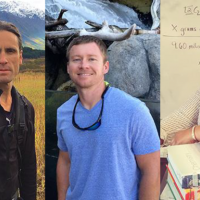
Frank Stewart and Darren Parris are being recognized for their collaborative Summer Workshop in Marine Science (SWiMS) program. The award recognizes genuine and substantial partnerships between Georgia Tech faculty and students and the K-12…

An evolutionary biologist, William Ratcliff studies how organisms change over time. In particular, he wants to understand how multicellular organisms can evolve from single cells. This question remains one of the fundamental problems in biology…

Joseph Rabinoff and Matthew Torres are two of Georgia Tech’s 2018 CTL/BP Junior Faculty Teaching Excellence Award winners. Jointly supported by the Center for Teaching and Learning and BP America, the award recognizes the excellent teaching and…

Georgia Tech has selected Flavio Fenton and Raquel Lieberman as the joint recipients of the 2018 Faculty Award for Academic Outreach. The award recognizes faculty members for productive academic outreach going beyond their normal duties to enrich…

A recent study conducted by researchers from Emory University and Georgia Tech found that an infectious passenger with influenza or other droplet-transmitted respiratory infection will most likely not transmit infection to passengers seated…

This week in Nature, an international team reports an imaging technique to observe the vortex-like, rotating contractions that underlie life-threatening ventricular…

In popular culture, asteroids play the role of apocalyptic threat, get blamed for wiping out the dinosaurs – and offer an extraterrestrial source for mineral mining. But for researcher Nicholas Hud, asteroids play an entirely different role: that…
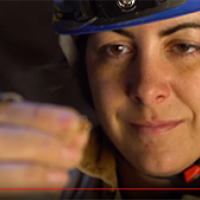
Jenny McGuire is one of several scientists featured in a documentary that WyomingPBS will air twice in February.

Chemical biologists at Georgia Tech and peer institutions in the Greater Atlanta area are poised for a grand debut on April 21, 2018 – at the First Annual Greater Atlanta Chemical Biology Symposium…

A pioneering glimpse inside elusive cell membranes illuminates a player in cell health but also in hepatitis C and in Alzheimer's. With the most powerful research neutron beams in the country, researchers open a portal into the hidden world…
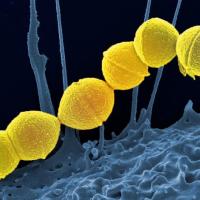
Antibiotics could become nearly useless by mid-century against intense infections due to bacteria evolving antibiotic resistance. And alternative treatments haven't been able to replace antibiotics in those big infections. It's time for a rethink…
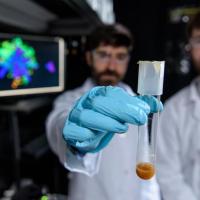
With no biological program to drive it, nascent multicellular clusters adopt a lifecycle thanks to the physics of their stresses. The accidental reproduction drives them to evolve as multicellular life.

Scholar, educator, award-winning book author, interdisciplinary innovator, and shaper of future scientists, Joshua S. Weitz wears many hats at Georgia Tech, but his influence reaches far…
AMP-IT-UP teachers Cheryl Wilder and Kathy Duke from Griffin-Spalding County schools participated in an ECOGIG research cruise to the Gulf of Mexico. The cruise provided the teachers with real-world experiences that they will apply in the…

Sam Brown aims to understand the dynamics of the bacterial populations – or microbiomes – associated with cystic fibrosis to develop treatments targeting the specific microbiomes of individual patients.
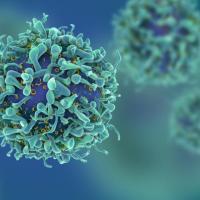
Here's an invitation for a throng of researchers to gather and fight cancer in an open source software project to hone predictions of drug effectiveness. Georgia Tech researchers have kicked off the project with a program…

Petit Institute lab of Raquel Lieberman makes groundbreaking discovery
